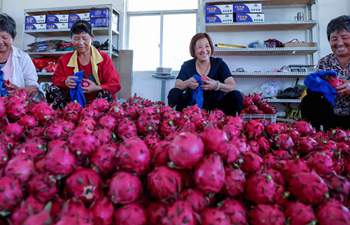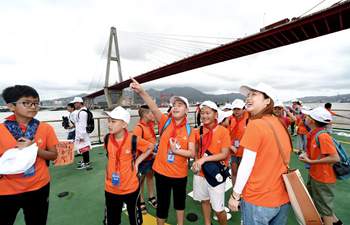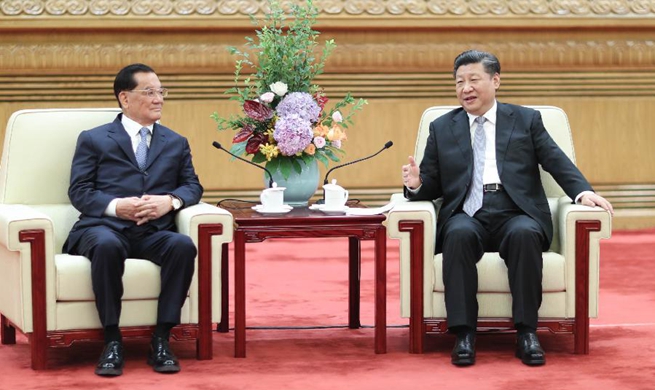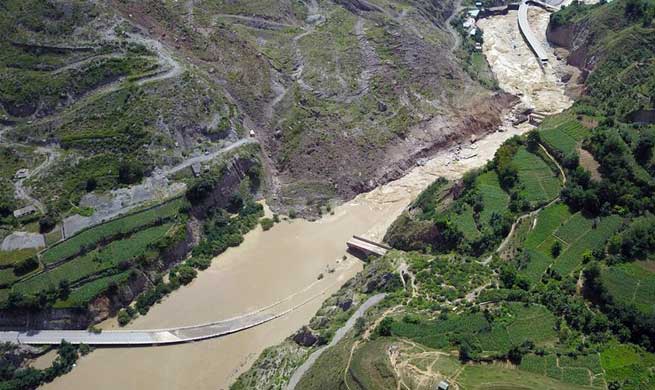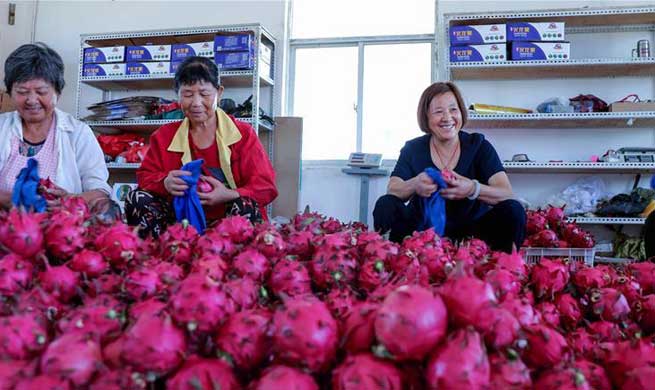ATHENS, July 14 (Xinhua) -- A consortium of 27 universities, technical companies and local authorities launched in Greece this week an innovative research project for the valorization of water resources.
Starting from three Greek islands, the project aims to promote novel usages for water quantities that would otherwise be discarded such as wastewater.
The HYDROUSA project, that is 83-percent funded by the European Union, will be applied on Tinos, Mykonos and Lesvos, equally splitting among them the six mini-schemes planned.
HYDROUSA's coordinators informed its stakeholders and the media at the Lavrio Technological and Cultural Park, south of Athens, about the details of the project that forms part of the EU's Horizon 2020 Research and Innovation Program.
It professes to go beyond the current water and wastewater management practices by adopting innovative, nature-based low-energy-footprint management solutions for different types of water such as wastewater, rainwater, groundwater, atmospheric vapor water and seawater.
The innovations employed will produce water suitable for different uses, including domestic and agricultural use and even drinking water, plus energy and value-added products to be marketed. For instance, on Tinos, the water produced will be partly used to irrigate tropical fruit plantations such as pineapple and papaya.
"All this is ideal for farmers, for hoteliers and so on, as the regenerative business models employed are of particularly low cost," explained Simos Malamis, Alternate Professor of Engineering at the National Technical University of Athens (NTUA) that hosted the presentation.
The project's implementation begins this month and will conclude in end-2022. Its total budget is estimated at 12 million euros (14.04 million U.S. dollars).
The six schemes applied on the three islands are on a very small scale, but the HYDROUSA exploitation plan provides for its implementation on a much larger scale and its expansion to other islands, countries and continents, driven also by local, environmental and commercial interests, as project coordinator for Brunel University in London, Evina Katsou, told Xinhua.
